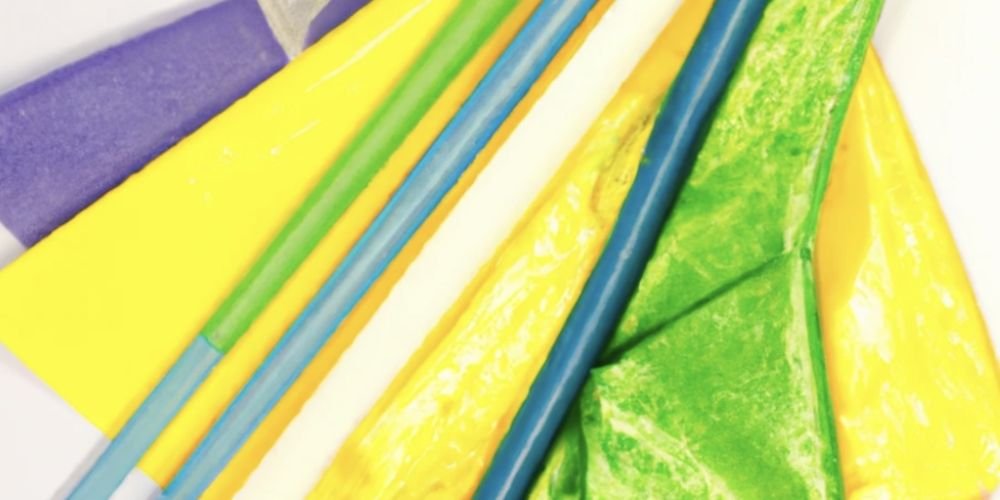Macroalgae as a Sustainable Resource for Non-Food Industries – BLU3 Product Development

Using seaweed macroalgae as a sustainable resource for non-food industries presents several biomaterials engineering challenges and factors that need to be carefully considered. Here is a comprehensive list of these factors, along with explanations for each challenge which BLU3 includes in its development baselines:
Chemical Composition Analysis:
Seaweed species exhibit a diverse range of chemical compositions, including variations in polysaccharides, proteins, and minerals. Tailoring these compositions to specific applications is complex and requires an in-depth understanding of seaweed biochemistry. This involves not only identifying but also manipulating these components to achieve the desired material properties.
Enhanced Biodegradability:
The design of seaweed-based biomaterials necessitates a fine balance between environmental degradation and functional longevity. Innovations in biodegradable technologies are required to ensure these materials decompose effectively, without leaving harmful residues, while maintaining their functional integrity during their usage life.
Advanced Processing Techniques:
The selection and development of extraction and processing techniques are critical. These methods need to be not just environmentally sustainable but also scalable and economically viable. Research into novel processing technologies that maximize yield and quality while minimizing environmental footprint is crucial.
Optimizing Mechanical Properties:
Seaweed-derived biomaterials must be engineered to possess optimal mechanical properties, like tensile strength, elasticity, and resilience, tailored to specific industrial applications. This involves sophisticated material science techniques to modify and enhance these properties without compromising other aspects like biodegradability or biocompatibility.
Stringent Biocompatibility Standards:
For applications involving contact with living tissues, seaweed materials must adhere to strict biocompatibility requirements. This involves rigorous testing and certification processes to ensure that these materials do not elicit adverse biological reactions.
Durability in Diverse Environments:
The durability of seaweed-based materials is a multi-faceted challenge. These materials must withstand various environmental stresses, such as temperature fluctuations, humidity, and exposure to chemicals. Research into protective coatings or material composites is essential to enhance durability.
Sustainable Seaweed Farming Practices:
The cultivation and harvesting of seaweed must be done sustainably to protect marine ecosystems. This requires not only the development of sustainable farming techniques but also ongoing monitoring and management strategies to ensure ecosystem health.
Cost-Effectiveness and Economic Viability:
The economic aspect of seaweed-based biomaterials is critical. Studies into cost-reduction strategies, efficient resource utilization, and large-scale production methods are necessary to make these materials financially competitive.
Navigating Regulatory Landscapes:
Compliance with diverse and often stringent regulatory frameworks across different regions poses a significant challenge. This requires a comprehensive understanding of international standards and the development of materials that can meet these varied requirements.
Scalability and Commercialization Hurdles:
Scaling up from laboratory research to industrial-scale production involves numerous challenges. Consistency, quality control, and maintaining cost-efficiency at larger scales are key hurdles that need to be addressed through innovative manufacturing and quality assurance processes.
Material Degradation and Longevity:
Addressing the issue of material degradation, particularly in harsh environmental conditions, is critical. Research into UV-resistant, moisture-resistant, and other protective technologies is essential to extend the lifespan of these materials.
Integration with Existing Manufacturing Processes:
The adoption of seaweed-based materials in existing manufacturing infrastructures requires careful consideration. This involves not only technical compatibility but also logistical and supply chain adaptations.
Market Acceptance and Consumer Perception:
Overcoming market resistance and changing consumer perceptions are significant challenges. This requires effective marketing strategies, educational campaigns, and demonstrable benefits over conventional materials.
Comprehensive Waste Management Strategies:
Managing the waste generated in the production and disposal of seaweed materials is crucial for environmental sustainability. This involves the development of effective recycling, upcycling, or disposal mechanisms.
Product Diversity and Customization:
Catering to the diverse needs of different industries requires a broad range of seaweed-based products. This involves research into customizable materials that can meet specific industry requirements.
Rigorous Quality Control Mechanisms:
Maintaining consistent quality in seaweed-derived materials is essential for their reliability. Developing sophisticated quality control systems and standards is vital to ensure this consistency.
In-Depth Life Cycle Assessments:
Conducting comprehensive life cycle assessments (LCAs) is crucial to evaluate and demonstrate the environmental benefits of seaweed-based materials over conventional options. These LCAs must consider all stages of the product lifecycle, from cultivation to disposal.
Addressing these expanded and intricate biomaterials engineering factors in the development and implementation of seaweed-based materials for non-food industries is vital. This endeavor requires a multidisciplinary approach, cutting-edge research, and a dedicated commitment to sustainability and environmental conservation. The BLU3 biomaterial engineered products and solutions are designed with an acute awareness of these comprehensive factors, ensuring a responsible and forward-thinking approach to sustainable material development.


